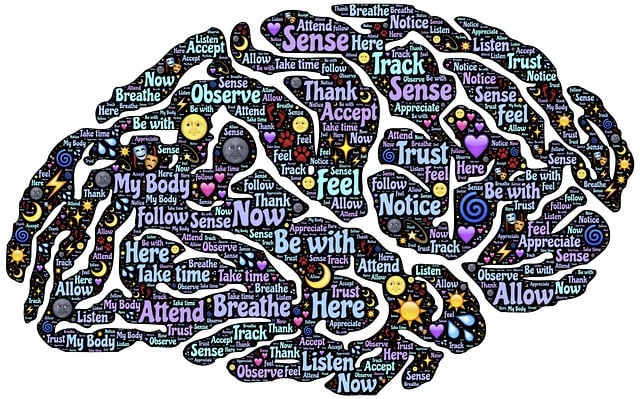Developing a mental wellness app tailored to Aurora Oppositional Defiance Disorder (ADOD/AODD) requires a deep understanding of this niche audience's unique needs. By offering specialized features like mood tracking, cognitive behavioral therapy tools, and conflict resolution techniques adapted for ADOD, apps can enhance user experience, build trust, and differentiate themselves in the market. This targeted approach, combined with community outreach and a multi-channel marketing strategy, not only reaches individuals struggling with AODD therapy but also contributes to broader mental health discourse. Measuring success through KPIs like engagement and retention rates ensures continuous improvement and maintains the app's relevance as a valuable resource for ADOD/AODD therapy.
In today’s digital age, mental wellness apps are gaining traction as effective tools for managing conditions like Aurora Oppositional Defiance Disorder (ODD). This article delves into a comprehensive marketing strategy development guide for such apps. We explore key aspects, from understanding the complex landscape of mental health and identifying target audiences to crafting unique value propositions and leveraging multi-channel marketing approaches. Additionally, we discuss data-driven methods for measuring success and continuous improvement, emphasizing the importance of staying relevant in a crowded market.
- Understanding Target Audience: Navigating the Complex Landscape of Mental Health
- Unveiling the Potential: Why Aurora Oppositional Defiance Disorder (ODD) Therapy Apps Are Gaining Traction
- Crafting a Unique Value Proposition: Differentiating Your App in a Crowded Market
- Multi-Channel Marketing Approach: Reaching Users Where They Are
- Measuring Success and Iteration: Data-Driven Strategies for Continuous Improvement
Understanding Target Audience: Navigating the Complex Landscape of Mental Health

Understanding your target audience is a cornerstone when developing any marketing strategy, especially for mental wellness apps. The landscape of mental health is complex and diverse, with various conditions and unique challenges that require tailored approaches. Among these, Aurora Oppositional Defiance Disorder (ADOD) stands out, demanding specialized therapy and support. When marketing an app aimed at improving mental wellness, it’s crucial to recognize that ADOD is more than just defiance; it’s a signal of underlying emotional and psychological issues that need addressing.
By focusing on this specific audience, you can offer valuable Mental Wellness Journaling Exercise Guidance and Conflict Resolution Techniques tailored for individuals with ADOD. This involves creating content and features within your app that cater to their specific needs, such as mood tracking, cognitive behavioral therapy tools, and strategies for managing oppositional behaviors. Such a targeted approach not only ensures that users receive relevant assistance but also fosters trust and engagement, setting your app apart in a competitive market while contributing positively to the mental health discourse.
Unveiling the Potential: Why Aurora Oppositional Defiance Disorder (ODD) Therapy Apps Are Gaining Traction

In today’s digital era, the demand for accessible mental wellness solutions is on the rise, and Aurora Oppositional Defiance Disorder (ODD) therapy apps are at the forefront of this transformation. ODD, characterized by chronic opposition and defiant behavior, often goes undiagnosed or untreated due to societal stigma and traditional therapy’s time-consuming nature. However, innovative app-based platforms are changing this landscape. These applications offer discreet, portable, and personalized therapy sessions tailored to the unique needs of individuals with ODD.
By combining evidence-based techniques with engaging digital interfaces, these apps provide an accessible entry point for those seeking support. Features like interactive exercises, mindfulness meditations, and self-care practice guidance empower users to actively participate in their mental wellness journey. Moreover, public awareness campaigns that highlight the effectiveness of these apps are fostering a sense of community and normalizing conversations around ODD. This, in turn, encourages more individuals to embrace digital therapy options as viable alternatives or complements to traditional treatment methods.
Crafting a Unique Value Proposition: Differentiating Your App in a Crowded Market

In today’s digital age, countless mental wellness apps vie for users’ attention, making it imperative to craft a unique value proposition. To stand out in this crowded market, an app focused on Aurora Oppositional Defiance Disorder (AODD) therapy must offer something distinct and compelling. Highlighting features that cater specifically to AODD symptoms, such as enhanced mood management tools tailored to the disorder’s challenges, can attract a targeted audience seeking specialized support.
Beyond individual therapy, integrating community outreach program implementation within the app creates a sense of belonging and empowers users with emotional regulation strategies. By fostering connections among app users, you build a supportive network where individuals with AODD can share experiences, gain insights, and offer encouragement, ultimately reinforcing the app’s value as an innovative and effective resource for mental wellness.
Multi-Channel Marketing Approach: Reaching Users Where They Are

In today’s digital age, a multi-channel marketing approach is essential to connect with users facing mental health challenges, such as Aurora Oppositional Defiance Disorder (AODD). By leveraging various online and offline channels, mental wellness apps can effectively reach individuals where they are most active. Social media platforms offer direct engagement with potential users seeking support; targeted ads and influencer partnerships can help in spreading awareness about AODD therapy options.
Additionally, incorporating Burnout Prevention Strategies for Healthcare Providers and emphasizing Emotional Regulation techniques within the app’s content can attract professionals looking to enhance their practice. Engaging through email campaigns and community forums allows for building trust and fostering connections. These strategies, combined with advocacy efforts focused on Mental Health Policy Analysis and Advocacy, ensure that the app reaches a diverse audience struggling with mental wellness issues, providing accessible and tailored solutions.
Measuring Success and Iteration: Data-Driven Strategies for Continuous Improvement

Measuring success is a crucial aspect of developing any marketing strategy, especially for mental wellness apps that deal with complex issues like Aurora Oppositional Defiance Disorder (AODD) therapy. By analyzing key performance indicators (KPIs), app developers and marketers can understand user engagement, retention rates, and the impact of their campaigns. Data-driven insights enable them to identify what’s working and make informed decisions to optimize the app’s performance.
Iteration is a vital component of this process. Continuous improvement means regularly updating the app based on user feedback and behavior data. For instance, if stress management workshops or resilience-building features gain popularity, these can be further enhanced or promoted more aggressively. Similarly, identifying areas where users drop off, whether it’s during onboarding or specific tasks, allows for targeted improvements to user experience and engagement, ensuring the app remains a valuable resource for those seeking AODD therapy and trauma support services.
Developing a comprehensive marketing strategy for mental wellness apps, such as those focusing on Aurora Oppositional Defiance Disorder (ODD) therapy, requires a nuanced understanding of the target audience and a unique value proposition. By leveraging a multi-channel marketing approach that caters to users’ preferences and utilizing data-driven metrics for continuous improvement, developers can carve out a successful niche in the crowded app market. This strategic development not only enhances user engagement but also ensures that effective ODD therapy becomes more accessible and appealing to those who need it most.











